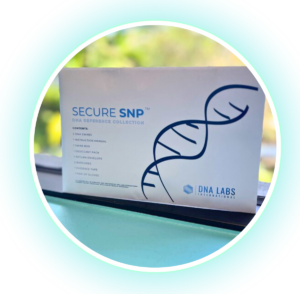Now Available: Secure SNP™
For Simple, Accurate SNP Reference Testing
DNA Labs International is proud to introduce Secure SNP™, an easy and affordable way to collect and process DNA reference samples using the latest SNP array technology to move your genealogy case forward.

- Low-cost, easy-to-use, in-house collection kit for collecting DNA samples quickly and stress-free
- Shipped directly to you – no extra coordination needed
- Collect and return samples effortlessly to DNA Labs International
- Our team of experts will perform all the testing at our laboratory, ensuring fast, accurate, and reliable results.
If you are a law enforcement member performing the test, download the consent form here
If you are a volunteer performing the test, download the consent form here
Glossary of terms
SNP profile: A single nucleotide polymorphism (SNP) profile is a unique pattern of genetic variations (SNPs) found in an individual’s DNA. These variations are single-letter differences in the DNA sequence compared to a reference genome. By analyzing these variations, researchers and clinicians can gain insights into disease susceptibility, drug response, relatedness, and ancestry.
SNP array: A SNP array, or single-nucleotide polymorphism array, is a type of microarray used to analyze DNA variations, specifically single-nucleotide polymorphisms (SNPs), across the genome. These arrays contain a large number of probes that can bind to specific DNA sequences, allowing researchers to identify variations in DNA across many individuals or samples simultaneously.
Forensic Investigative Genetic Genealogy: Forensic Investigative Genetic Genealogy (FIGG) is a technique that combines traditional genealogy with DNA analysis to generate investigative leads in criminal investigations, particularly for cold cases and unidentified remains. It involves uploading DNA profiles to public genealogy databases, identifying genetic relatives, and using traditional genealogy research to build family trees and potentially identify individuals.
FIGG Law Enforcement user: Access to Law Enforcement user accounts is restricted to police and forensic teams, including approved genealogists. Searching for matches related to violent crimes is limited to those profiles that have “opted in” to Law Enforcement matching. All database profiles are available for matching for the purpose of human remains identification (missing persons).






